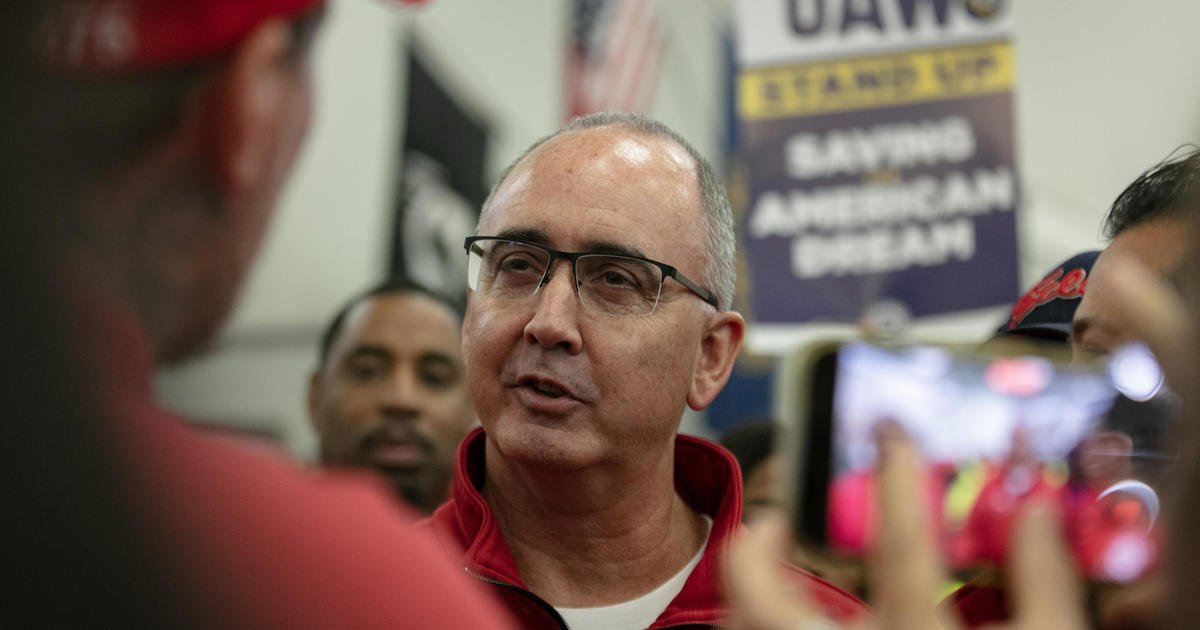Henry Ford CC Breaking Ground On Advanced Science Center
The official groundbreaking ceremony for the Henry Ford Community College's new Science Center is Friday, April 1, at 3 p.m.
HFCC officials say the event is another critical step in Henry Ford's advancement as a place of research and learning, as well as an organization dedicated to the economic development of southeast Michigan.
"This is one of our most important improvements to the college, but more significantly, the impact of this new facility will extend into the classroom and beyond as HFCC works to enhance our local, regional and state economy," HFCC president Gail Mee said. "We have a tremendous wealth of technical talent in southeast Michigan, as well as many corporations seeking technical talent trained in the sciences for a number of positions. This center of excellence will further the sustainability goals of the college with a science center that models, teaches and promotes sustainability. And it will ensure that HFCC is at the forefront of preparing these students for the many new, cutting-edge careers awaiting them in southeast Michigan and indeed throughout our state."
SHW Architects, an educational building specialist based in Austin, Texas with an office in Berkley, will design the center.
According to Jim Chatas, principal at SHW, the project "will alleviate the burden of the existing building by adding laboratory and research space for Henry Ford Community College's current science course work."
Chatas said that "flexibility was a driver for the design. As programs evolve or change over time, the center will easily adapt. The project incorporates the concept of 'Science on Display,' from the collaborative group study spaces integrated into the corridors to the visibility of the preparatory room to the public. The facility will be an immersive learning environment that will provide students opportunity to view and learn as they experience the center."
As for sustainability, he said that the center's "sustainable strategies will not only address environmental issues and energy conservation, but also highlight features to create awareness for students and faculty on campus. Features include the plaza and vegetated 'green' roof on top of the addition, rain garden built into the site and a vegetated green wall. The project truly wears green on its sleeve."
Turner Construction Co. (www.turnerconstruction.com/michigan), the New York City-based construction giant and the nation's largest "green" contractor, will lead the construction effort.
"The sciences are an exciting and promising area for students seeking technical careers," said Steve Berlage, vice president and general manager of Turner's Michigan offices in Detroit, Troy and Grand Rapids. "Turner has completed more than 70 science building projects in the past year and is committed to making sure this new science center fulfills HFCC's goals for research and instruction."
The project calls for an expansion of 19,000 square feet that adds capacity and addresses the growing demand for science courses. New science programs such as biotechnology are in place, but the current space does not adequately support advanced science. Programs such as nursing, surgical technician, radiography technician, physical therapy technician and respiratory therapy technician are dependent on sufficient science courses that HFCC offers. The expansion will provide four new laboratories and two new classrooms for life science, which has experienced the greatest growth.
The new science center offers a unique opportunity to position HFCC and students for the new Michigan economy by creating well-equipped space to support high demand programs.
For example, HFCC's Biotechnology Program works to train students to become biotechnology technicians in the region's molecular biology-based industries and institutions. According to Charles Jacobs, associate dean of science at HFCC, the program curriculum is unique because it's a "direct outgrowth of the technical and workplace requirements that biotechnology employers seek," adding that through this program, "students receive critical training in new technologies and instrumentation, complimented by rigorous science content. The result is that HFCC graduates highly competent, talented professionals who can step into any company and make an immediate impact."
A new science center that uses a sustainable, environmentally friendly approach will usher in additional opportunities for new and existing students, and provide the strong foundation for programs like biotechnology.
HFCC officials say the new center will use many green principles and strategies necessary to earn the Leadership in Energy and Environmental Design certification. This is a nationally accepted benchmark for the design, construction and operation of high performance green buildings.
All possible LEED components will be part of the project and the college will strive for gold certification. The new mechanical systems contribute significantly toward LEED objectives. Another important sustainable design element is a green roof for the expansion which would reduce HVAC needs and provide an outdoor laboratory for students. An outdoor rain garden, at ground level, would provide an additional outdoor laboratory and improve the quality of storm water runoff.
Built in 1963, the Science Building represents one of the original structures on campus. During its 48-year history, the college has held many programs and events in the building, as well as lectures and labs for thousands of students. Although the building has been maintained well, age and increased usage over time now requires a significant renovation to provide a safer, modern and comfortable learning environment for students. In addition, some of the science disciplines taught today were not in existence in 1963. But perhaps one of the most critical factors in pursuing a new science center is simply this: the role of science has changed immensely and plays a much stronger role in the transformation of the regional economy toward a sustainable structure built on economic diversity.
The cost of the project is $15 million, with half of this amount provided by state capital outlay funds and half provided by the HFCC capital projects fund. The project schedule calls for work on the expansion to begin in April 2011 and conclude in April 2012. The renovations to the existing science building are expected to occur during the spring and summer semesters of 2011. Classes for those semesters would be relocated to other buildings.
More at www.shwgroup.com, www.turnerconstruction.com/michigan, or www.hfcc.edu



